Dear Music Lover:
Thanks again for joining me on this tour of America’s music and of the country itself. Before we get underway, allow me to plug my latest book, which I co-wrote with the love of my life, the Italian pirate lady
Capuano.Called “Far and Wild,” our book tells the story of Fabi’s twenty years of travel as a single woman through 100+ countries.
Fabi posts a lot of fun pictures and videos from her travels, along with excerpts from the book, on her Substack. Check it out! It’s free!
Better yet, pick up a copy of “Far and Wild” from Amazon. The ebook is only five bucks!
Thank you!
“Her” Music?
Some of you may be wondering why I used the feminine pronoun “her” to describe the USA in the title of this podcast, and I honestly don’t know. It just felt right to me when I started writing the copy back in 2015.
I put the question to ChatGPT (“Is using the feminine pronoun for the United States of America acceptable?”), and it (He? She? They?) responded as follows:
Writers, orators, and poets—especially in the 18th and 19th centuries—often personified countries, ships, and abstract ideals using feminine pronouns. Referring to the U.S. as “she” or “her” can sound archaic or overly romantic unless used deliberately for stylistic or emotional effect.
Well, shiver me timbers! I identify as archaic, overly romantic, and as a 19th-century poet and writer, so I guess it’s okay.
She it is!
My risky pronoun choice for the USA is not the only risk I took in this episode, but you’ll just have to listen to find out!
Tap on the big PLAY button found above.
Show Notes and Playlist
I started with part of “White Privilege” by Macklemore. As I said in my episode about the music of Southern California, I believe hip-hop is the only genre of modern music that speaks with the same raw authenticity as the music of defiance from the 60s. “White Privilege and its follow-up, “White Privilege II,” reveal Macklemore struggling through a personal battle as a successful “white” rapper who “culturally appropriates” from “black” people.
Relax Mackemore. I offer you some advice while playing “Cantaloupe Island” by Herbie Hancock. I sense you need it. While Hancock is not from the Pacific Northwest, the hip-hop superstar Snoop Dogg credited him for “inventing hip-hop.”
But who invented what? Every musician since the dawn of time has culturally appropriated from those who came before, all the way back to when the first human banged a bone on a rock and said: “Ugh. That sounds cool.”
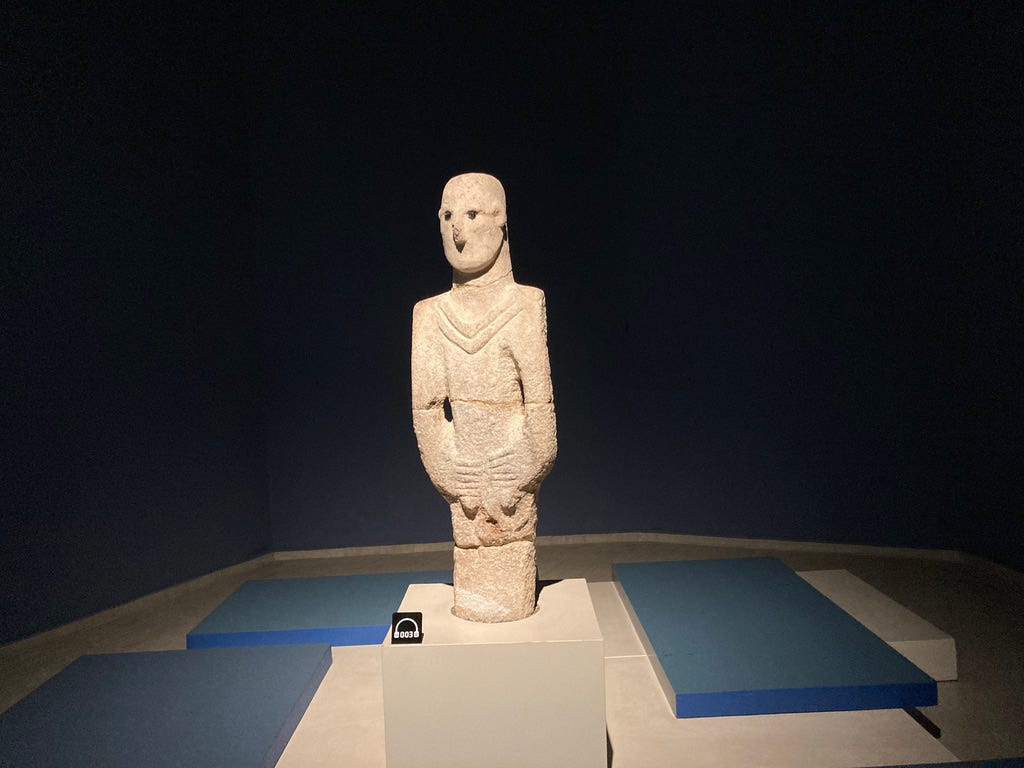
I played “Soul Meets Body” by Death Cab for Cutie, “Down by the Water” by the Decemberists, and “Fell On Black Days” by Soundgarden.
Jimi Hendrix and the Museum of Pop Culture
I played “Third Stone From The Sun” by the Jimi Hendrix Experience while introducing the Museum of Pop Culture, dedicated to “the ideas and risk-taking that fuel contemporary popular culture.” I visited the museum in 2017. Here are some pix.
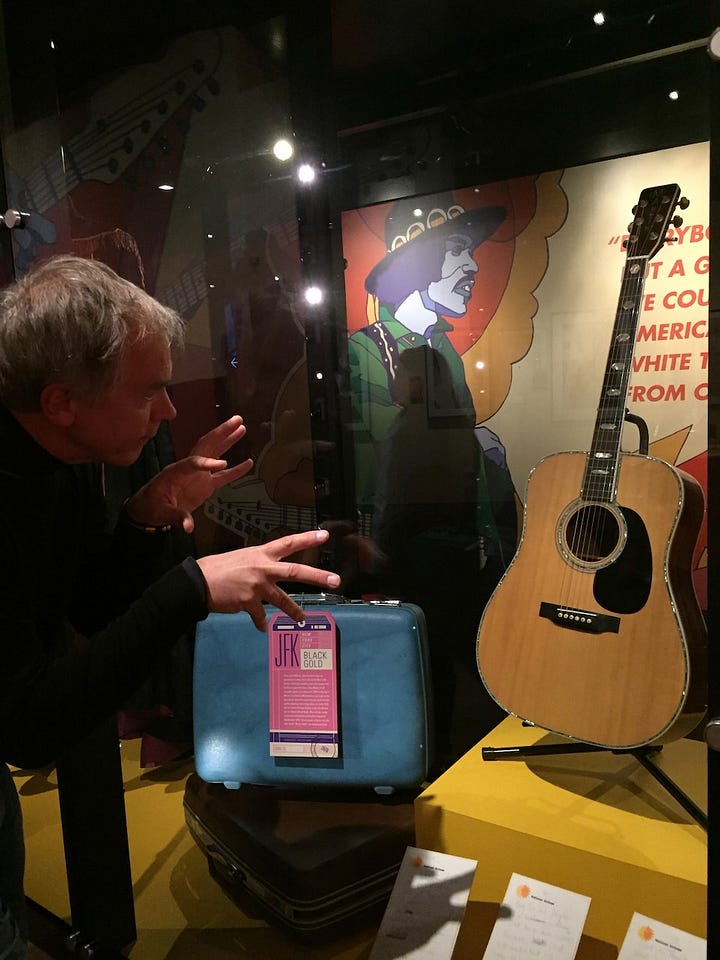
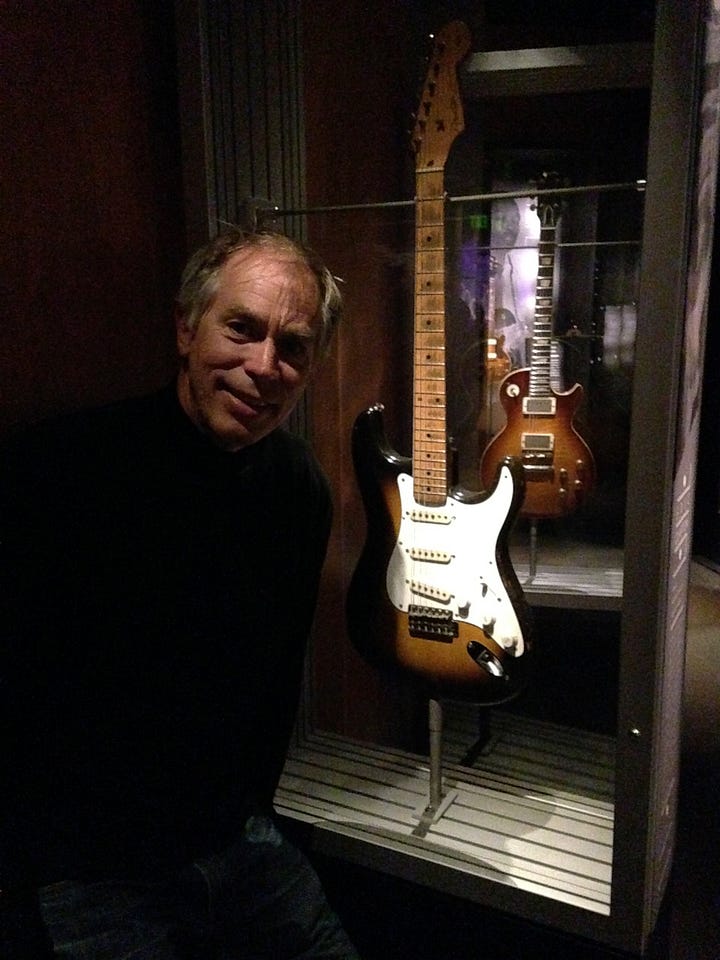

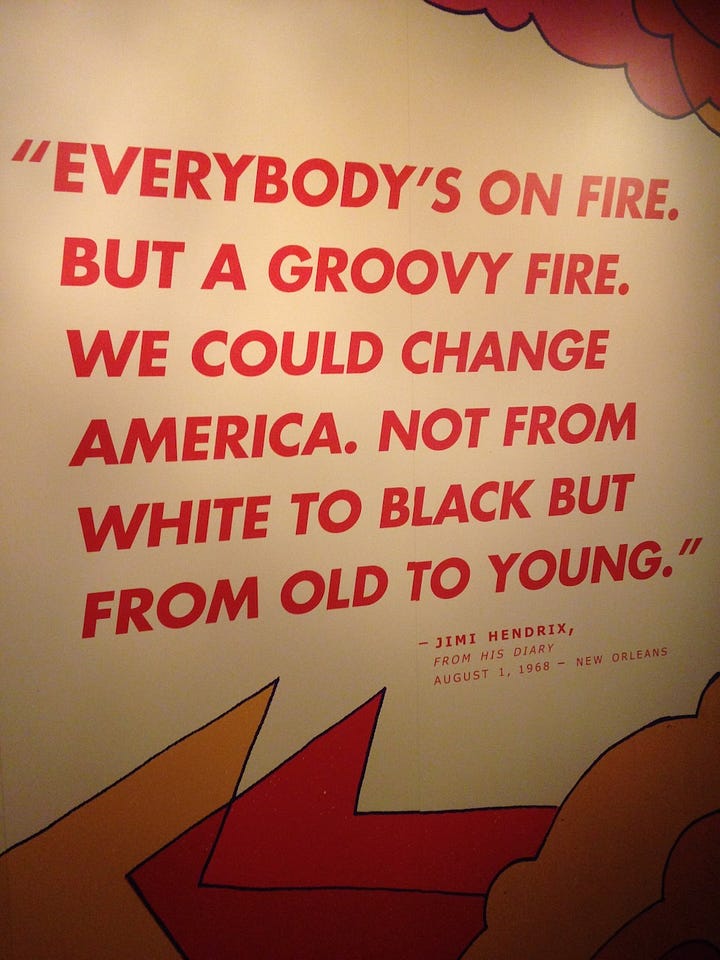
I played parts of “Spanish Castle Magic” and “If 6 Was 9” by the Jimi Hendrix Experience
I’ve got my own world to live through
And I ain’t gonna copy you
Jimi Hendrix
I closed the episode with the astoundingly good “All Along the Watchtower” by Jimi Hendrix, which amazes me every time I hear it.
Bonus Tracks
For some extra fun, here are two additional versions of “All Along the Watchtower.” The first is by the song’s composer, the great Bob Dylan.
The second is by some goofball I found laying on the street in dirty clothes sucking on a wine bottle in a paper bag. Is it an AI deep fake? Oh no! That’s me!
Coming Up Next!
We nod to Chicago as we pass it by and head farther east to Detroit City, where we stop for the night at a modest white house located at 2648 West Grand Boulevard.
Don’t recognize the address? You will surely recognize the music made there!
I’ll see you next week. Until then…

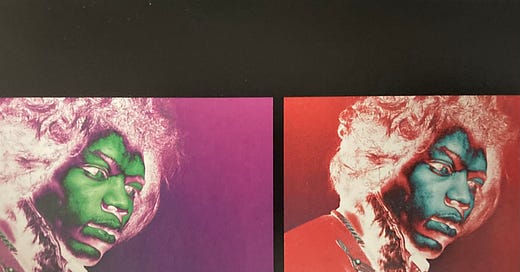


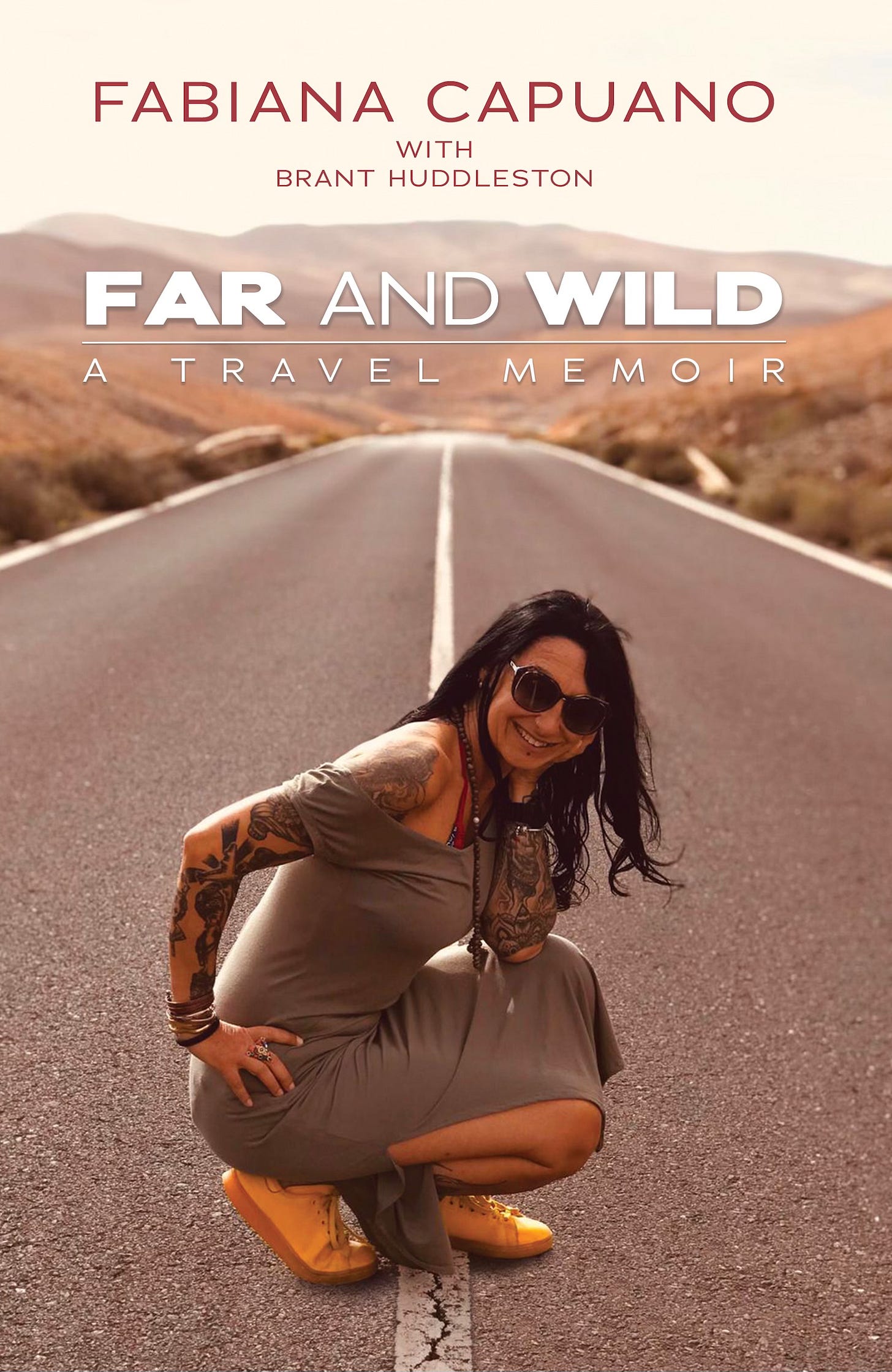

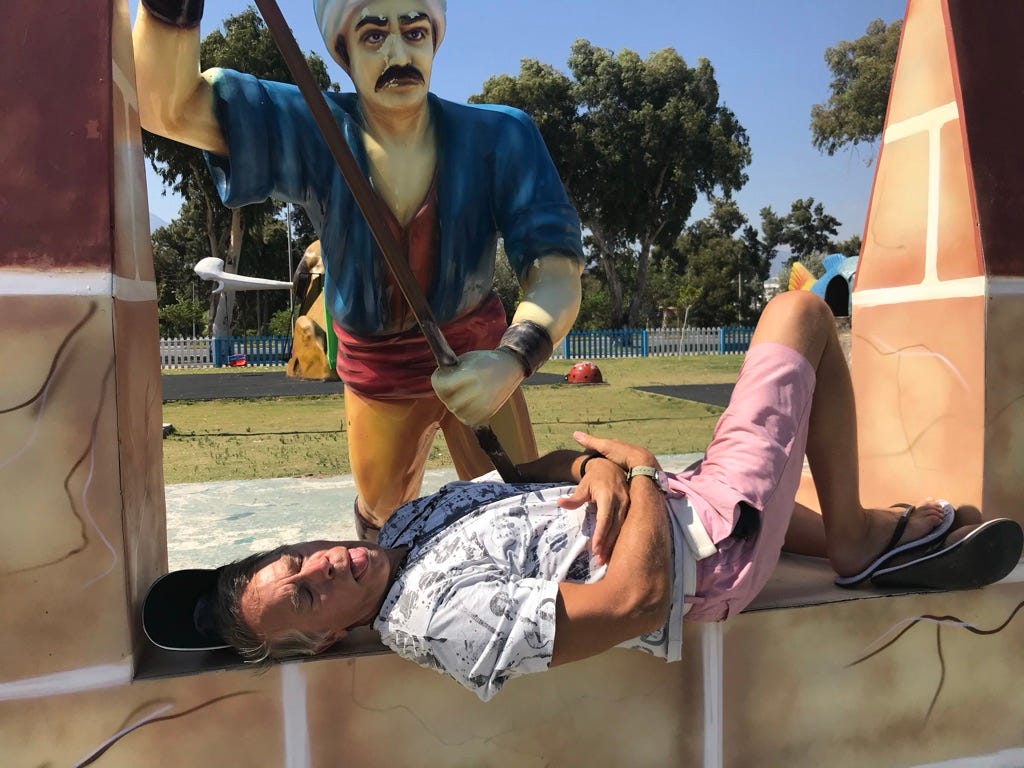
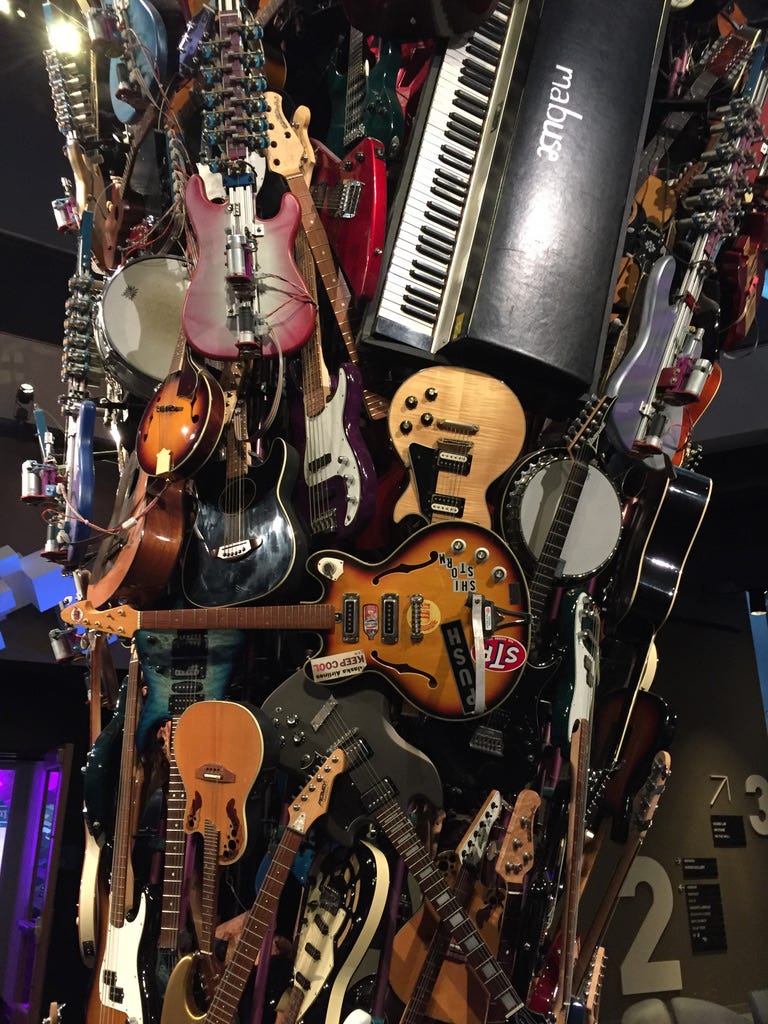
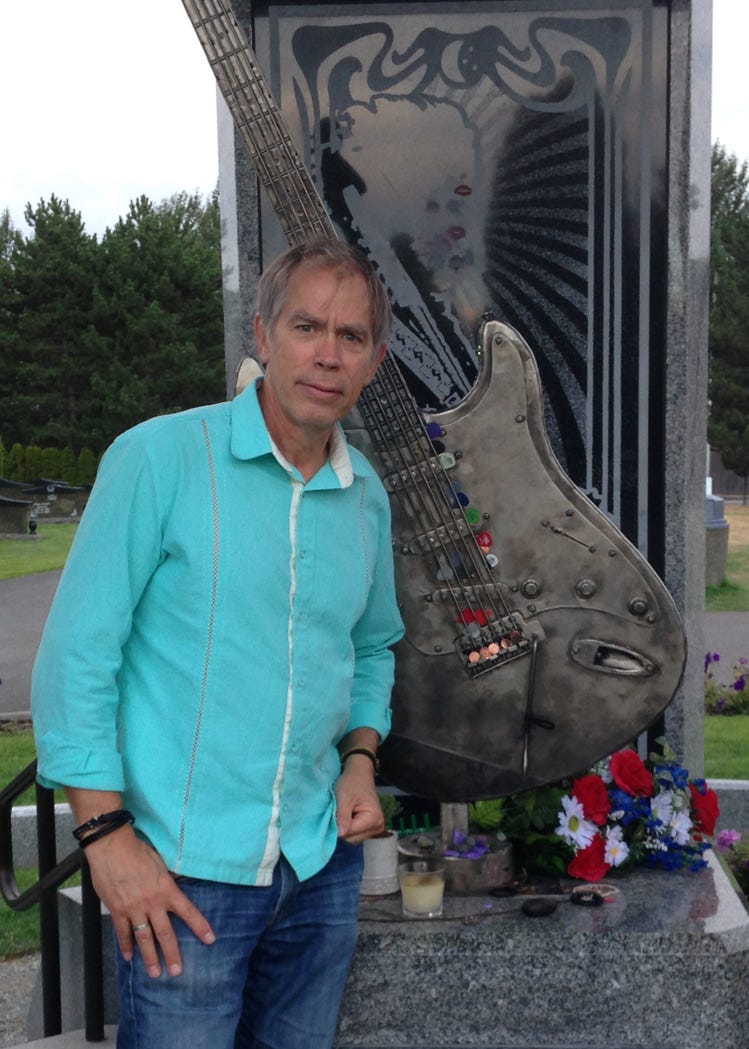
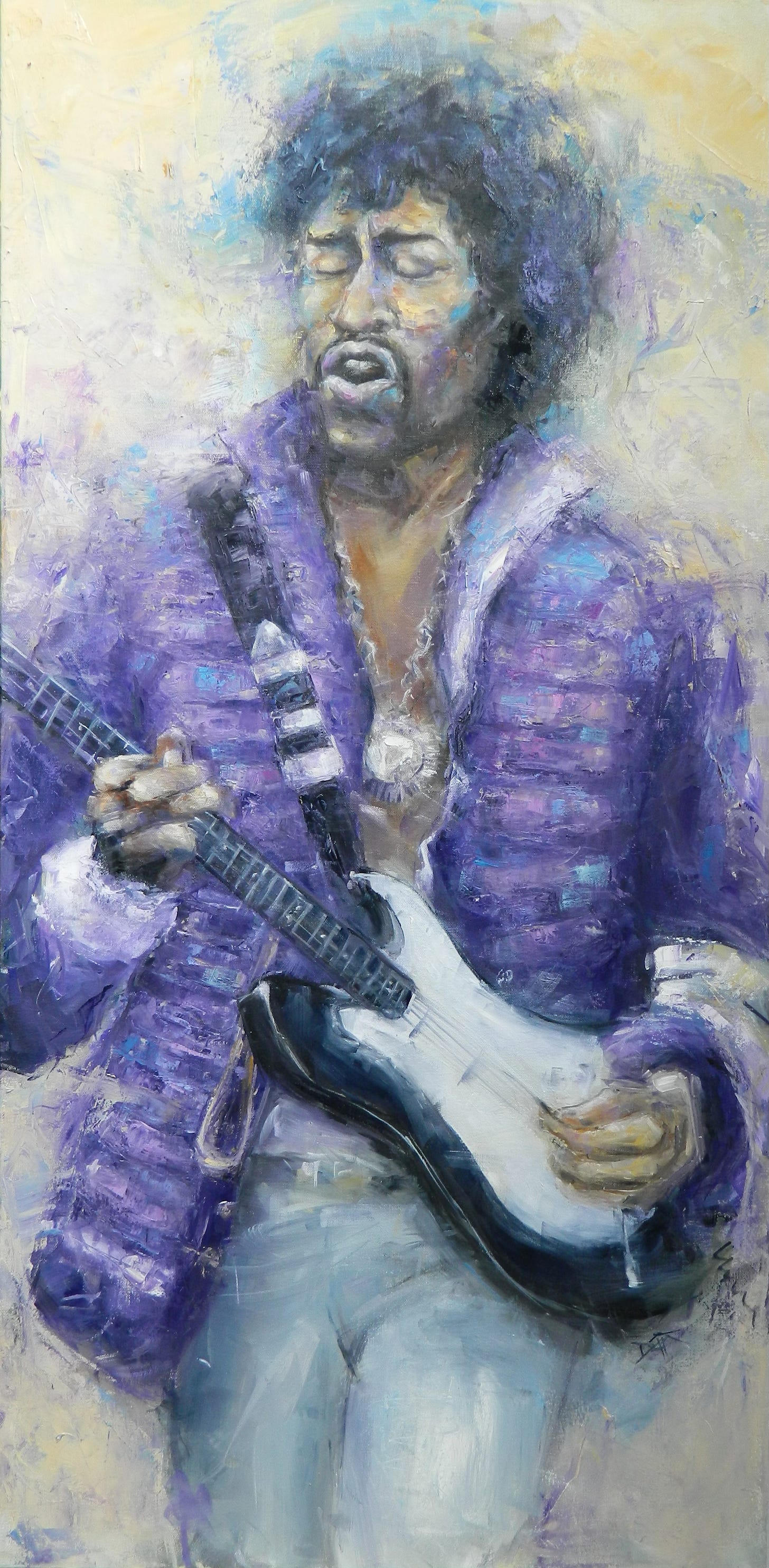
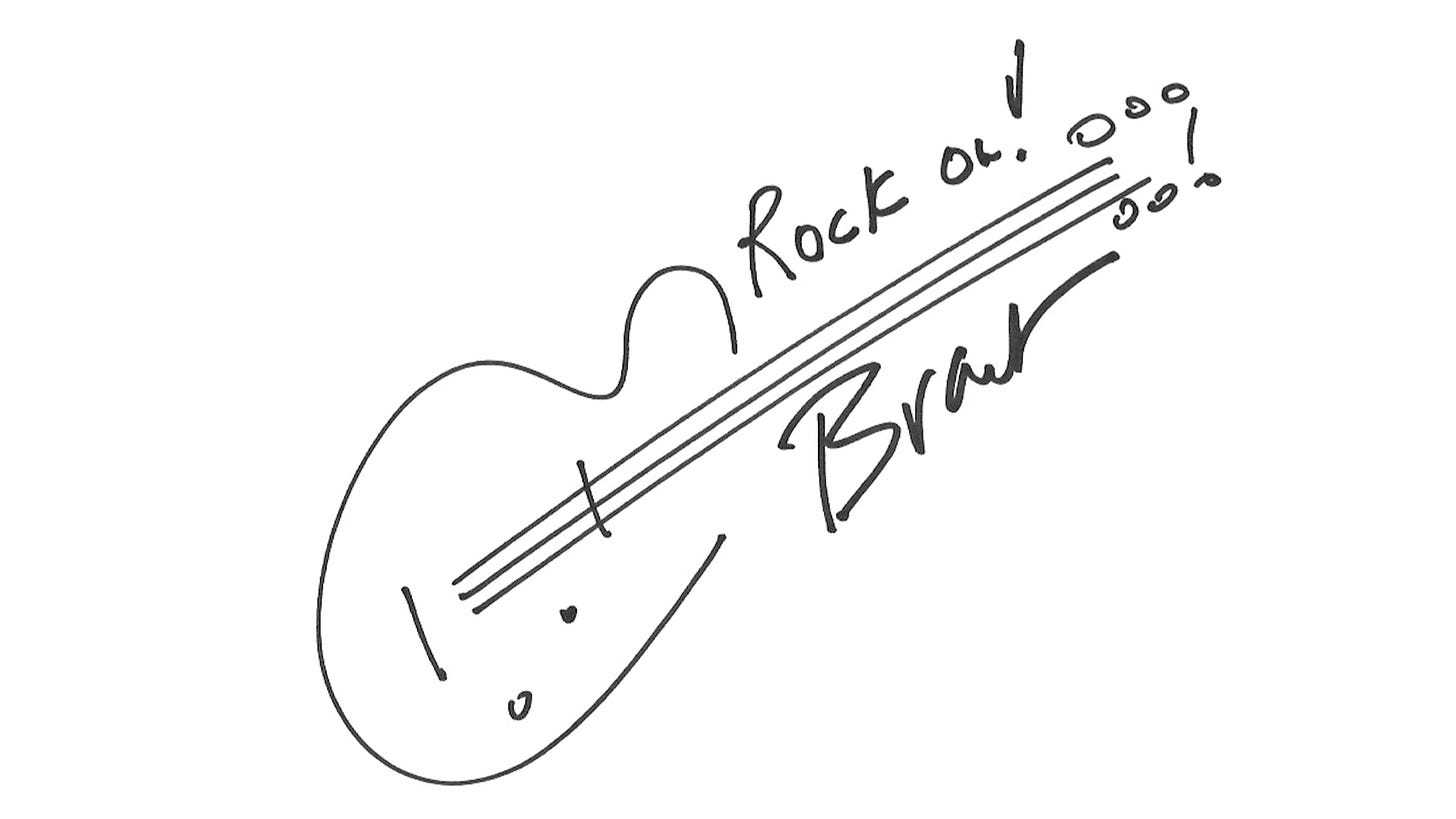


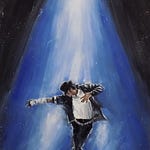
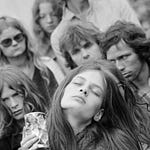
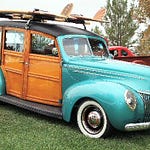
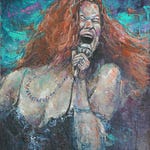

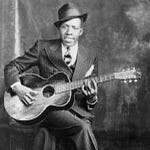
Share this post